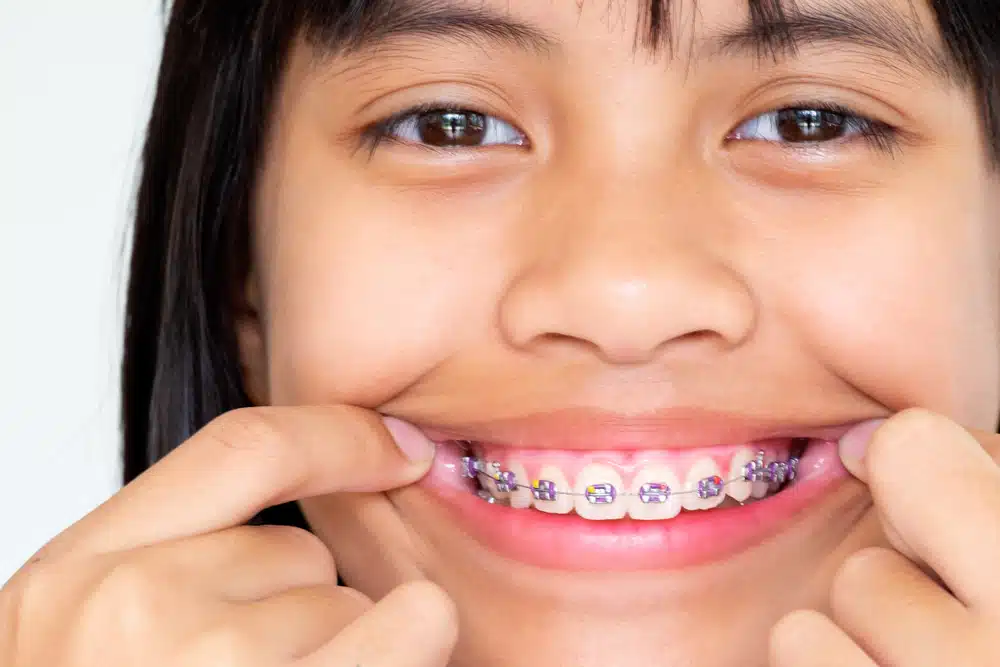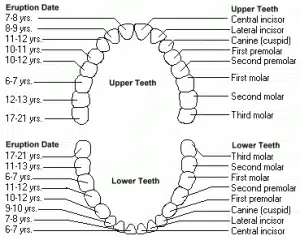When we are young our teeth make their way into our mouths through a process known as tooth eruption. How do they know when to stop erupting? Basically, they keep going until they find the opposing tooth. But what if we lose a tooth? Much like a computer program, the tooth opposite the missing one starts looking for the tooth that it is supposed to chew against. If it can’t find i
t, it may erupt all the way to the opposing gum. It’s not that the tooth is growing. The bone below (or above it) moves it into position. Of course, at this point, it’s in the wrong position, and entirely new problems often start to appear.
If this were all that happened, we would have enough to worry about in terms of our ability to chew our food well. This is important for good digestion and nutrition. Unfortunately, when teeth border an empty space they also have a tendency to try to drift into it. This means that teeth may drift forward or backward toward the spaces. Perhaps this is nature’s way of distributing the load now that one of the soldiers has fallen. It is an engineering marvel, but it can become a chewing nightmare.
While all of our teeth are important, structurally, the loss of certain teeth will bring about more change than the loss of others. Think of this in terms of the walls of your house. If you take down a non-supporting wall, the house will still stand. Take out a supporting wall, however, and you have a bigger problem. Teeth are constructed much like an arch, though. If you have ever seen a stone arch, you know it has a keystone at the top that keeps the arch together. Remove that one stone, and the whole thing collapses. In your dental arch, you can think of your canines as a keystone. Lose them, and the ensuing change is rapid. If your teeth were straight, they often won’t be for too much longer.
So, why then, do people lose teeth? The most common reasons that I see are:
- Periodontal disease – this is sometimes also referred to as “gum disease” but is really a condition more directly affecting the bone. This is the result of a bacterial infection leading to the permanent breakdown of the bone surrounding the teeth. It is actually the most common form of tooth loss world-wide. Because it is generally not painful, often people have no idea that they have periodontal disease until their teeth start to get loose and fall out.
- Tooth decay – this is what many people think is the main cause of tooth loss. And while it is true that tooth decay often does lead to tooth loss, it follows periodontal disease in terms of frequency.
- Habits – this is the type of tooth loss that results from such things as tooth grinding or clenching. This area is one in which we often see a “domino-effect” of problems. Sometimes clenching or grinding starts with the loss of a single tooth or an accident resulting in a spinal misalignment. At other times, it may be due to stress, a deficiency, or genetic structural anomaly. In any of these cases, if the grinding or clenching results in the wear of your canines (those “key-stones” again), you may find yourself wearing down ALL of your teeth more rapidly. They are pointy for a reason. When you slide your teeth to the side, they are supposed to keep the back teeth from touching. If they wear down to the point where all of your teeth touch in all directions it is possible to wear them all down. Over the years I have had cases where what brought the patient in to see me in the first place was that they wore down their teeth to the point where they exposed their nerves. (Ouch!)
- Accidents – this speaks for itself. And it happens. It may be a sports injury, car accident, a fight, or biting into something hard – but if it breaks off enough of the tooth, it can need to be extracted.






